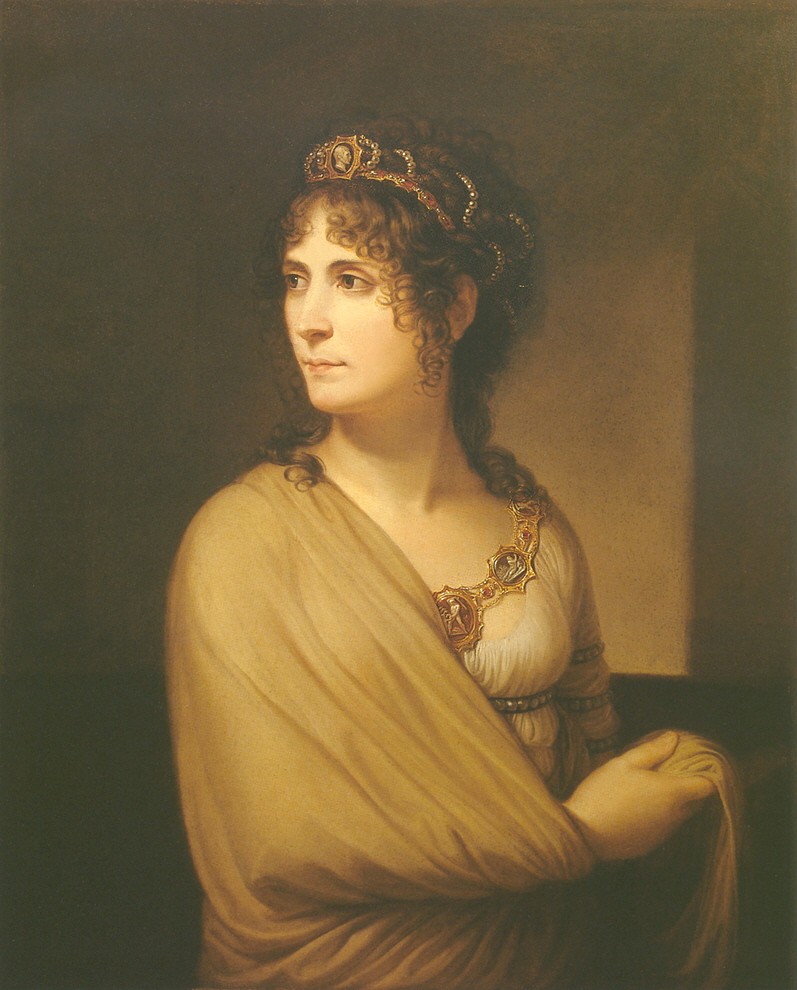© Unofficial Royalty 2024

Josephine de Beauharnais, Empress of the French; Credit – Wikipedia
May 29, 1630 – Birth of King Charles II of England at St. James’s Palace in London, England
The execution of Charles II’s father King Charles I on January 30, 1649, during the English Civil War, made Charles the de jure King. Charles escaped England and fled to France. Oliver Cromwell was declared Lord Protector of the Commonwealth of England, Scotland, and Ireland. England remained a Commonwealth and then a Protectorate until 1659. In 1660, Parliament formally invited Charles, as King Charles II, to be the English monarch in what has become known as the Restoration. In 1662, Charles II married Catherine of Braganza, the daughter of King João IV of Portugal, but their marriage was childless. Although King Charles II had no legitimate children, he has many descendants through his many illegitimate children. Among his descendants are Diana, Princess of Wales and Sarah, Duchess of York, and their children Prince William, Prince Harry, Princess Beatrice and Princess Eugenie; Queen Camilla; Princess Alice, Duchess of Gloucester and her son Prince Richard, Duke of Gloucester. On February 2, 1685, King Charles II suffered an apparent stroke and died four days later at the age of 54. Modern analysis of his symptoms seems to indicate he may have died from uremia, a symptom of kidney failure.
Unofficial Royalty: King Charles II of England
May 29, 1814 – Death of Josephine de Beauharnais, Empress of the French, Napoleon’s first wife, at the Château de Malmaison, near Paris, France; buried at St. Pierre and St. Paul Church in Rueil, France
Joséphine was unable to give Napoleon an heir. Without a son, Napoleon had named Joséphine’s grandson (and his own nephew), Napoleon Charles Bonaparte, as his heir. After the young Napoleon died in 1807, Emperor Napoleon began to consider finding another wife who could provide him with a son. In November 1809, he told Joséphine that he planned to divorce her and find a new wife. She agreed to a divorce, and an elaborate divorce ceremony was held. Joséphine retained her title as Empress and her rank at court, and received a pension of 5 million francs per year.
Unofficial Royalty: Josephine de Beauharnais, Empress of the French
May 29, 1873 – Death of Prince Friedrich of Hesse and by Rhine, grandson of Queen Victoria of the United Kingdom, at Neues Palais in Darmstadt, Grand Duchy of Hesse and by Rhine, now in Hesse, Germany; buried at the Mausoleum of Rosenhöhe in Darmstadt
Frittie, as he was called in his family, and his brother Ernst Ludwig were playing in their mother’s bedroom. Ernst went into another room to look through the window which was at an angle to the window in Alice’s bedroom. While Alice was out of the room to get Ernst, Frittie climbed up to the window in the bedroom to see Ernst. The chair he climbed on tipped over and Frittie fell from the window to the ground below. Due to his hemophilia, Prince Friedrich died from his injuries.
Unofficial Royalty: Prince Friedrich of Hesse and by Rhine
Unofficial Royalty: Hemophilia in Queen Victoria’s Descendants
May 29, 1881 – Birth of The Honorable Sir Alexander Ramsay, son of John William Maule Ramsay, 13th Earl of Dalhousie and husband of Princess Patricia of Connaught, granddaughter of Queen Victoria, in London, England
Full name: Alexander Robert Maule
Ramsay had a long career in the Royal Navy. During World War I, Ramsay took part in several important naval operations. He was promoted to Rear Admiral in 1933 and commanded the aircraft carriers in the Atlantic Fleet for the next five years. He became Fifth Sea Lord and Chief of Naval Air Services, posts he held until the outbreak of World War II. He was promoted to Admiral in 1939 and retired from the Royal Navy in 1942.
Unofficial Royalty: The Honorable Sir Alexander Ramsay
May 29, 1890 – Birth of Feodora of Saxe-Meiningen, Grand Duchess of Saxe-Weimar-Eisenach, second wife of Wilhelm Ernst, Grand Duke of Saxe-Weimar-Eisenach, in Hanover, Kingdom of Prussia, now in Lower Saxony, Germany
Full name: Feodora Karola Charlotte Marie Adelheid Auguste Mathilde
Feodora was the great-granddaughter of Princess Feodora of Leiningen, the half-sister of Queen Victoria of the United Kingdom. In 1910, she married 1910, Grand Duke Wilhelm Ernst of Saxe-Weimar-Eisenach, and they had four children. Her marriage was unhappy, and Feodora struggled to cope with the strict etiquette and protocol of the Weimar court. She soon began to throw herself into charity work, working with organizations that helped the poor. After World War I, her husband abdicated in November 1918 and the family went into exile in Heinrichau, Silesia (now Henryków, Poland), where her husband died several years later. When the area fell under Soviet occupation in World War II, the family was again forced to flee, losing their estates and many of their assets. As a means of negotiating with the authorities, Feodora agreed to sign over the Goethe and Schiller Archive, on the condition that it would be converted into a private foundation, and the family’s assets would be returned. Despite the written agreement, the government did not return many of the family’s assets, and the dispute continues to this day. Feodora settled in Freiburg im Breisgau, Germany, where she died on March 12, 1972 at the age of 82.
Unofficial Royalty: Feodora of Saxe-Meiningen, Grand Duchess of Saxe-Weimar-Eisenach
May 29, 1978 – Death of Mary-Elizabeth Sabri, the former Queen Nazli of Egypt, second wife of King Fuad I of Egypt, in Los Angeles, California; buried at the Holy Cross Cemetery in Culver City, California
Unofficial Royalty: Nazli Sabri, second wife of King Fuad I of Egypt
This article is the intellectual property of Unofficial Royalty and is NOT TO BE COPIED, EDITED, OR POSTED IN ANY FORM ON ANOTHER WEBSITE under any circumstances. It is permissible to use a link that directs to Unofficial Royalty.
